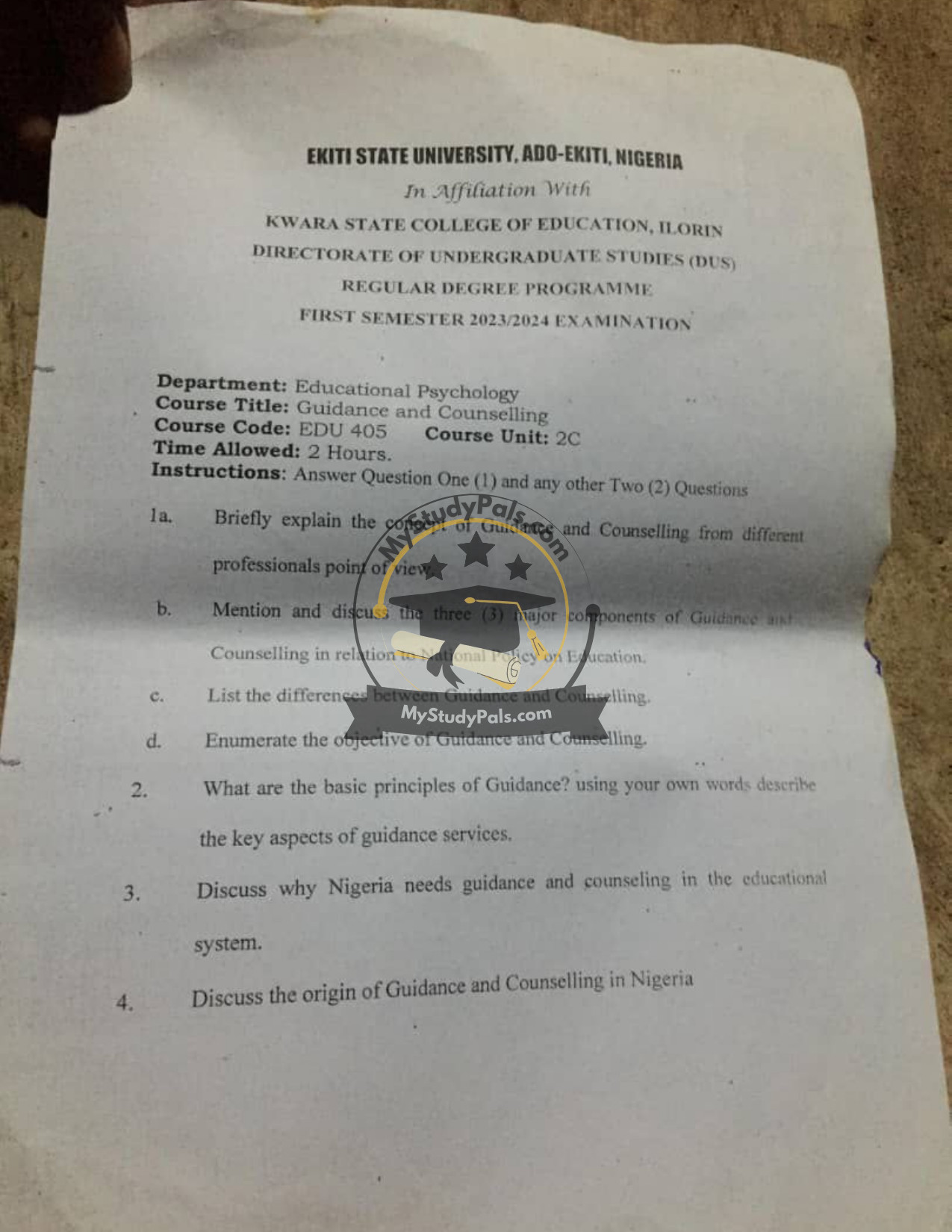ANWSER
Question 1a:
Answer:
Guidance and Counselling can be defined differently by professionals:
– Psychologists: View it as a process to help individuals understand themselves, resolve personal issues, and achieve mental well-being.
– Educators: See it as a support system to assist students in academic, career, and personal development.
– Social Workers: Emphasize its role in addressing societal and environmental challenges affecting individuals.
– Career Counselors: Focus on helping individuals make informed career choices and develop vocational skills.
—
Question 1b:
Answer:
The three major components of Guidance and Counselling in relation to the National Policy on Education are:
1. Educational Guidance: Helps students with academic choices, study habits, and examination techniques to enhance learning.
2. Vocational/Career Guidance: Assists individuals in career planning, skill development, and job placement.
3. Personal-Social Guidance: Supports emotional and social development, helping individuals manage relationships and personal challenges.
—
Question 1c:
Answer:
Differences between Guidance and Counselling:
| Guidance | Counselling |
|————–|—————–|
| Preventive and developmental in nature. | Remedial and therapeutic in nature. |
| Broad and covers general life directions. | Focuses on specific personal or emotional issues. |
| Often group-oriented. | Usually one-on-one or individualized. |
| Provided by teachers or advisors. | Conducted by trained counselors or psychologists. |
—
Question 1d:
Answer:
Objectives of Guidance and Counselling include:
– Helping individuals understand their abilities and interests.
– Assisting in career and academic decision-making.
– Promoting emotional and social adjustment.
– Encouraging self-awareness and personal growth.
– Providing support for individuals facing crises or challenges.
—
Question 2:
Answer:
The basic principles of Guidance are:
1. Holistic Development: Focuses on the individual’s overall growth (academic, career, and personal).
2. Voluntary Participation: Individuals seek guidance willingly.
3. Confidentiality: Privacy of information is maintained.
4. Individual Differences: Recognizes unique needs and abilities.
Key aspects of guidance services include:
– Assessment: Identifying strengths and weaknesses.
– Information Dissemination: Providing resources on careers and education.
– Counseling: Offering emotional and psychological support.
– Follow-up: Monitoring progress after interventions.
—
Question 3:
Answer:
Nigeria needs Guidance and Counselling in its educational system because:
– It helps students cope with academic pressures and career choices.
– Addresses rising social issues like drug abuse, teenage pregnancy, and mental health challenges.
– Supports national development by equipping youths with employable skills.
– Bridges gaps in educational inequalities by providing personalized support.
– Promotes moral and ethical values among students.
—
Question 4:
Answer:
The origin of Guidance and Counselling in Nigeria can be traced to:
– 1960s: Introduced in schools to address post-independence educational and career needs.
– 1970s: Formalized with the establishment of counseling units in universities.
– 1981: Recognized in the National Policy on Education, mandating its inclusion in schools.
– 1990s-Present: Expanded to address societal challenges, with professional bodies like the Counselling Association of Nigeria (CASSON) promoting standards.
—


